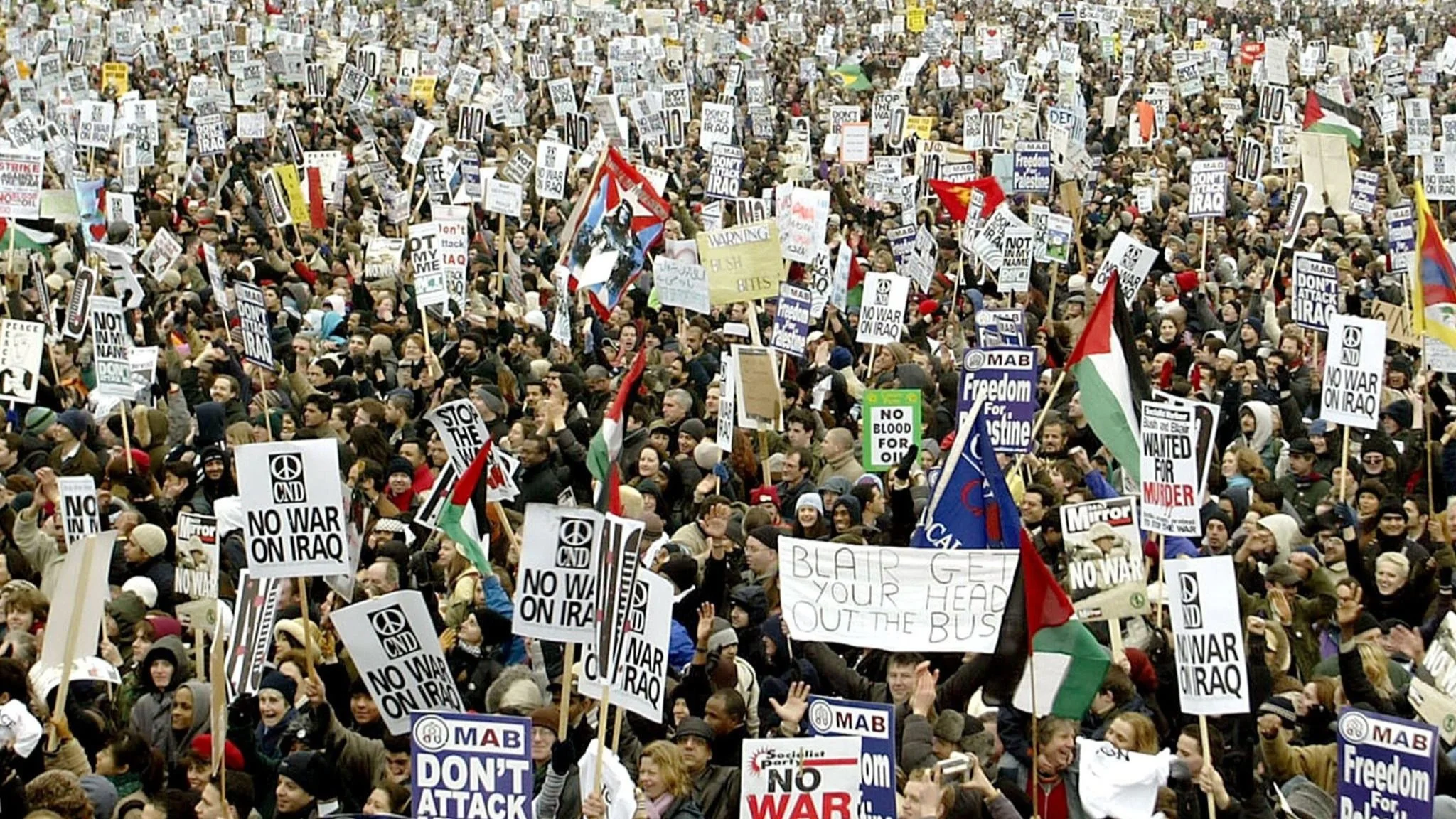We Are Many
A day of world-wide relevance viewed in retrospect.
Although Amir Amirani is Iranian he grew up in London and has long been based there. His career has been centred on work for television and We Are Many is his only cinema feature. It is easy to believe that it was a passion project - not just because his credits on it cover the direction, the production, the writing and (in conjunction with Chris Morphet) the photography, but on account of the fact that he is on record as embracing the view that the Iraq War was the crime of the century. We Are Many is concerned in particular with the events of one day, the 15th of February 2003, when that war was pending and global protests against it took place. Since the war went ahead regardless, the failure of the world-wide demonstrations could be seen as a disastrous defeat for those who believed that the voices of the people could count against the plans of the influential few in positions of power. But Amirani, as his film reveals, believes that the events of 15th February 2003 had a positive long-term effect that was significant. In addition to arguing that what happened then became an encouragement to activists taking to the streets in Cairo in 2011, he suggests that the eventual revelation of how people had been duped as to the supposed weapons of mass destruction existing in Iraq has created a situation in which political leaders are now far more wary of ignoring public opinion.
In presenting this argument and looking at the surrounding historical events, Amirani's film is splendidly effective if not quite perfect. The weak moments come at the start and again at the close. At the outset references back to 9/11 take us into decidedly well-trodden territory while the use of wide-ranging music on the soundtrack and a quote from Shelley suggest a self-conscious striving for effect. When We Are Many is drawing to an end the fault is the familiar one of undue lingering when a sharper, more succinct conclusion would be better. But these are very minor points and for the rest the film is quite admirably assembled. A splendidly wide range of contributors all speak well and with strong feeling, are never allowed to go on for too long and are so presented that interview shots combine neatly with relevant historical footage. Among those featured are the author John Le Carré, the academic Noam Chomsky, the musician Damon Albarn and the American Secretary of State Colin Powell. Filmmaker Ken Loach is another who appears but only briefly.
This film is also imaginative on the visual level. Filming took place in seven countries and Amirani knows just when to use split screen images to build up the impact. Inevitably some of the material here is familiar but much of it is unexpected, be it the sight of protestors in Antarctica or a recollection of planting a 'No War’ sign on the top of the Sydney Opera House. It is clever too when Blair and Bush are seen in images that merge in and out of each other to denote the extent to which they speak with one voice. Indeed the case against these two men over the issue of the Iraq War has rarely been put as tellingly as it is here. Those minor doubts can readily be put to one side: We Are Many is an outstanding documentary.
MANSEL STIMPSON
Featuring Hans Blix, Laurence Wilkerson, Damon Albarn, Noam Chomsky Tony Benn, Colin Powell, John Le Carré, Ken Loach, Danny Glover, Mark Rylance, Tariq Ali, Richard Branson, Ron Kovic, Philippe Sands.
Dir Amir Amirani, Pro Amir Amirani, Ex Pro Taghi Amirani, Ph Amir Amirani and Chris Morphet, Ed Adelina Bichis and Martin Cooper, Music Alex Baranowski and Simon Russell.
Amirani Media-Amirani Media.
110 mins. UK. 2014. Rel: 21 May 2015. Cert. 12A.


